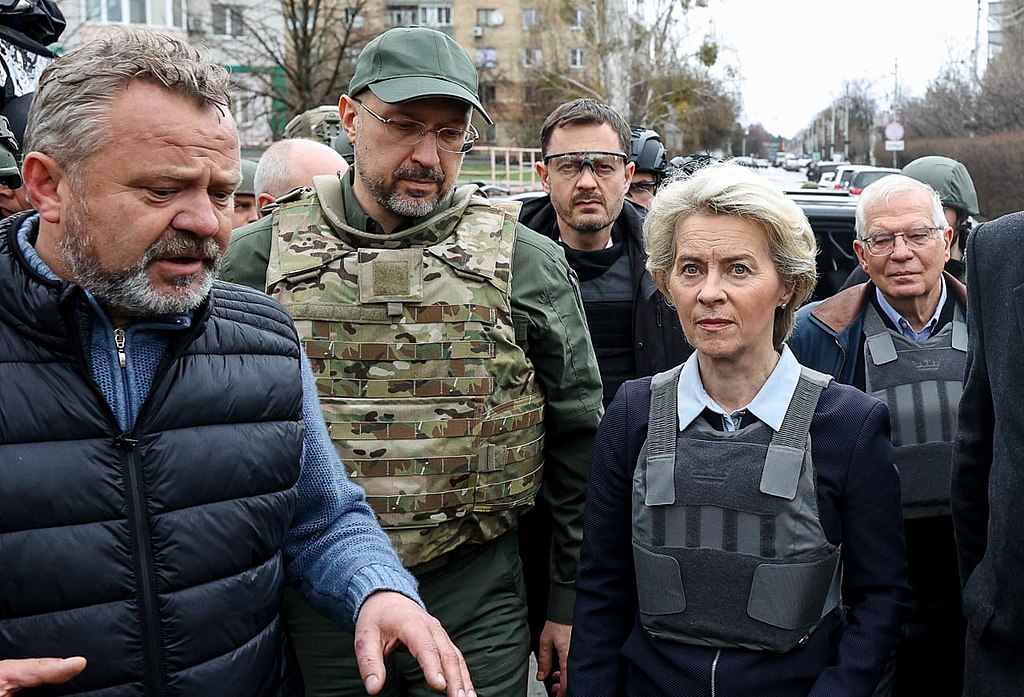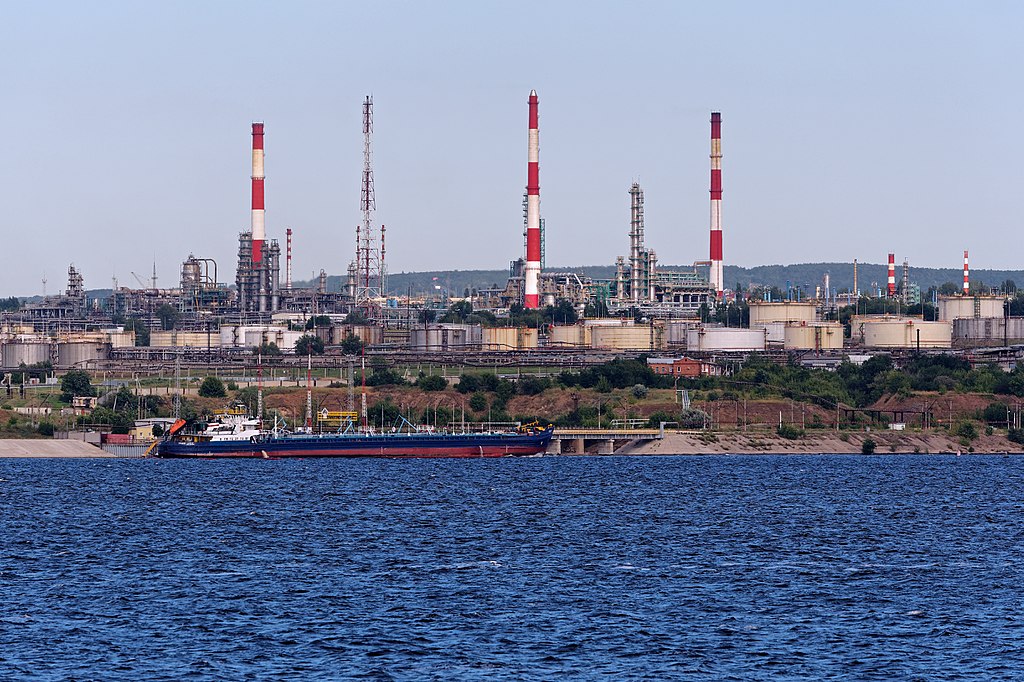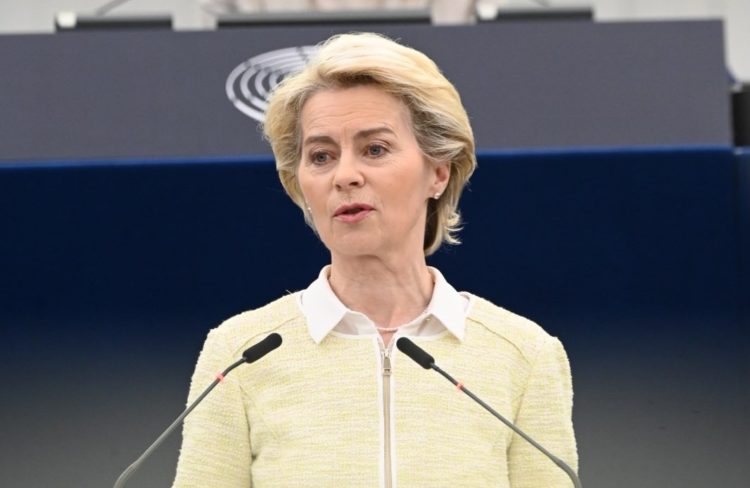The European Commission has announced its plan to eliminate regional imports of Russian oil gradually. The ban is part of the sixth proposed European Union sanction package imposed on Russia for its aggression against Ukraine.
The proposal is yet to be approved by the members of the 27-nation bloc as it intends to gradually phase out Russian oil imports before instituting a total ban after six months. Surprisingly, Germany, Europe’s largest economy, which has highly been reliant on Russian oil, has backed the proposal.
“We are also pushing within the EU to now phase out oil together as Europe in the EU’s sixth sanctions package,” German Foreign Minister Annalena Baerbock said.
The crackdown on oil and other Russian petroleum products is the centerpiece of this round of EU sanctions, which also includes the removal of Sberbank, Russia’s largest bank, and two others from the SWIFT international payment system. This is a follow-up to an initial batch of Russian banks that were removed from SWIFT during the first weeks of the war in Ukraine.
A draft of the proposal was disseminated to EU members on Tuesday and is scheduled to be discussed by their respective ambassadors this Wednesday. According to officials and EU diplomats, a decision is expected to be made by the end of the week.
All member-states must agree on the terms of the proposal for it to pass. This clause, combined with Europe’s dependency on Russian energy, has hampered the region’s ability to attack the primary driver of Putin’s war machine – oil revenue.
The European Union sucks up about 3 or 3.5 million barrels of Russian oil every day. This translates to approximately 35% of the region’s total oil supply being imported from Russia in 2020, along with 20% of its coal and 40% of its natural gas.
“Let us be clear: it will not be easy,” European Commission President Ursula von der Leyen said while addressing the European Parliament.
“Some member states are strongly dependent on Russian oil. But we simply have to work on it. We now propose a ban on Russian oil. This will be a complete import ban on all Russian oil, seaborne and pipeline, crude and refined.”
The United States and Europe have worked closely to ensure that Russia is punished for its invasion. In March, President Biden announced the White House’s decision to ban all imports of Russian oil and energy products.
A month later, photos and footage of the atrocities that happened in the Ukrainian city of Bucha reignited talks of banning Russian energy in the EU. This pushes the Union to ban the import of coal – not gas, as a response.
“These atrocities cannot and will not be left unanswered,” von der Leyen said last month. “It is important to sustain utmost pressure on [Russian President Vladimir] Putin and the Russian government at this crucial point.”
EU diplomats also hinted at a possible move to prohibit oil imports, but talks began to die down after several countries, including Germany and Austria, opposed the ban. The proposal only regained momentum recently after Germany, one of the major importers of Russian oil, announced that it had found alternative sources.
“We have managed to reach a situation where Germany is able to bear an oil embargo,” German economy minister Robert Habeck said. “This means it won’t be without consequences.”
Breathing Room For Some EU Members
The ban has long been a hot topic within the EU, given the members’ dependency on Russian energy. However, the proposal this time includes some parameters that make the ban more flexible, allowing for more countries to agree with the deal.
Three unnamed EU officials confirmed that the Commission’s proposal includes breathing room for countries like Hungary and Slovakia to stamp out Russian oil for a longer period. Two of the officials said both countries will be given until 2023 to impose the ban, compared to the year-end mandate for other members.

Von der Layen explained that a 6-month period was prescribed to allow the EU commodity market to adjust to the impending shock. This conflict in Ukraine has brought up new economic concerns for the EU, which was becoming increasingly reliant on Russia for years.
“We maximize pressure on Russia while at the same time minimizing collateral damage to us and our partners around the globe. Because to help Ukraine, our own economy has to remain strong,” von der Leyen said.
Timid Oil Prices
Surprisingly, the West’s move to ban Russian oil has not brought sky-high oil prices as some observers predicted. On the contrary, oil prices have remained timid as countries inch closer to imposing the ban. The International benchmark, Brent Crude, was 3% lower on Monday before recovering 0.4% at $107.58 a barrel. The benchmark peaked at $147 in 2008, which will be around $180 a barrel after adjusting for inflation.
The effect of Europe’s posturing to ban Russian oil appears to be culled by other global factors. For one, oil demand in China has dropped severely as the country reimposes strict lockdowns as part of its zero-Covid policy.

On the other side of the price equation, supply has been increasing. Led by the United States, countries have opened up strategic oil reserves to help supply refineries and refill depleted stations in the past months. These releases do not replace the Russian barrels but have provided some support for the market.
However, this pause in the price of oil should not be taken for granted. The world remains thirsty for oil, with more demand than is being supplied. The future of oil prices will greatly depend on what the West and Russia intend to do in the months to come.
A decision to increase the amount of oil production from the Organization of the Petroleum Exporting Countries (OPEC) could also drastically affect oil prices and ease market pressure. However, the intergovernmental group has not yet announced plans to do so.










COMMENTS